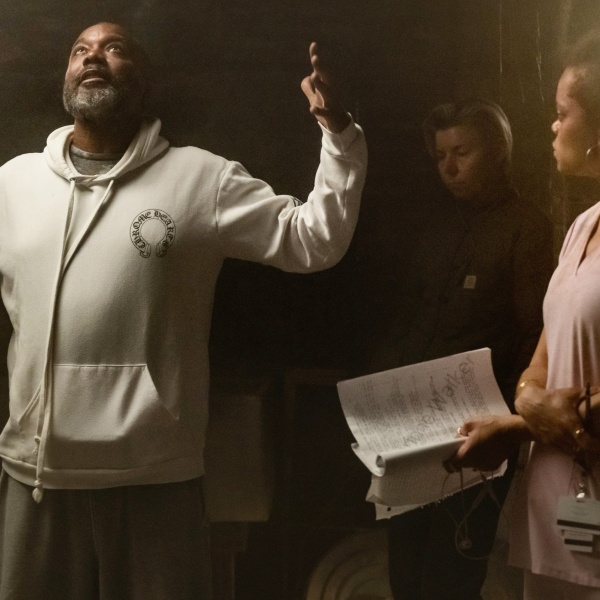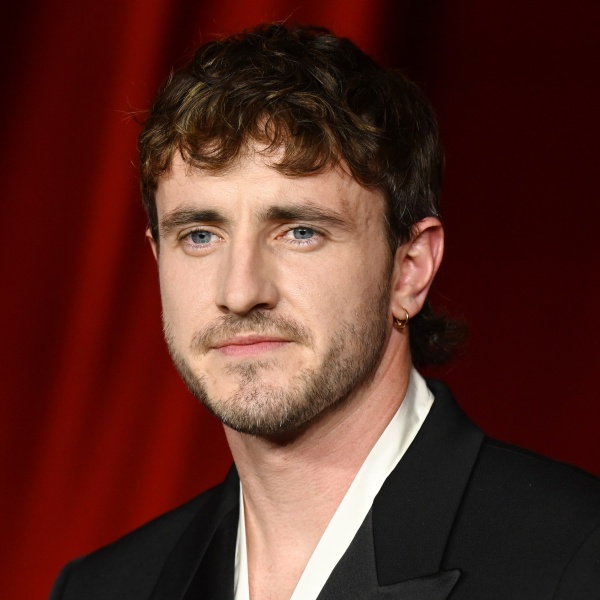Reliably one of the most euphoric and rewarding events on the circuit (and somehow always one of the most surprising, despite the consistency of its programming), the New York Asian Film Festival emerged at a time when hardcore cinephiles were forced to import prohibitively expensive foreign-region DVDs if they wanted to watch the latest hits from the other side of the world, and the first editions of the fest — then hosted at the Anthology Film Archives — got a major boost by screening hard-to-find cult objects and/or future classics at a time when Chinese, Japanese, and South Korean cinema were all on the rise to one degree or another.
No disrespect to the prestigious New York Film Festival, but NYAFF beat them to the punch when it comes to major auteurs like Park Chan-wook, whose “Sympathy for Mr. Vengeance” screened at the 2002 event alongside millennial breakouts like Corey Yuen’s “So Close,” unheralded pop masterpieces like Fumihiko Sori’s “Ping Pong,” and what the fuck did I just witness? gore-fests like Takashi Miike’s “Ichi the Killer.”
A decade after its inception, NYAFF was invited to make Film at Lincoln Center its permanent home, giving local audiences the chance to watch “Bedevilled” and “Battle Royale” in the same theater where Cannes-minted Asian fare like “Poetry” and “Uncle Boonmee Who Can Recall His Past Lives” would screen as part of NYFF a few months later.
Now in its 22nd year and thriving at a time when Asian-focused streaming platforms (and online piracy) have ostensibly made such films as accessible as anything on Netflix, NYAFF has become more valuable than ever by doubling down on what it’s always done best: Showing a wild array of great new movies that have never screened in the West — and may never screen here again — while leveraging the most high-profile titles in its lineup to support a diverse slate of films that continues to defy expectations.
Which isn’t to suggest that the 2023 22nd of NYAFF — which runs from July 14 thru July 30 — is skimping on the star power. Rising actress-musician Lee Hanee appears in two high-profile Korean titles (irresistibly deranged opening night selection “Killing Romance,” and spy-vs-spy box office smash “Phantom,” which also features “Parasite” actress Park So-dam in her most flamboyant role to date), while the ever-popular star Louis Koo also pulls double duty, playing “the Dirty Harry of Hong Kong paramedics” in “Vital Signs” along with his even more explosive role in “The White Storm 3: Heaven or Hell.” Sylvia Chang and Simon Yam co-star in a tender melodrama that hinges on Hong Kong’s iconic neon signage (“A Light Never Goes Out”), while K-pop megastar IU plays a cynical producer in a crowd-pleasing sports movie about an unhoused soccer team (“Dream”).
But, to an even greater degree than usual, it’s the hidden gems that make NYAFF’s programming special. A surreal thriller about a guy who falls through a manhole and tries to tweet his way to safety? Check. A dark — and I mean dark — comedy about two suicidal high school girls who agree not to hang themselves until they get revenge on their bully? Check. A magical-realist whatsit about a cop who tries to crack a drug case with some help from the ghost of the gay man to whom he’s been inadvertently betrothed? Check plus.
The 2023 slate epitomizes how effectively this fest has expanded its horizons to cover a fuller spectrum of the Asian world, with Singapore, Kazakhstan, and Malaysia all contributing to a 70-film slate that also includes multiple titles from commonly under-represented countries like the Philippines and Thailand (more on Rasiguet Sookkarn and Kongdej Jaturanrasmee’s “Faces of Anne” below). As part of the fest’s continued focus on the diasporic community, this year’s lineup also includes a documentary about Asian-American rappers in Atlanta (“A-Town Boyz”) and a modest — but merciless — dramedy about a British Asian father who’s about to have the worst day of his life (“The Effects of Lying).
The lineup is far too extensive for most people to see more than a fraction of it, but here are five standouts that anyone in the area should be sure to prioritize.
-
“#Manhole”

Image Credit: Courtesy NYAFF The first thing you might notice about Kazuyoshi Kumakiri’s “#Manhole” is the hashtag in its title, but it won’t be until mid-way through this warped and grimey single-location thriller that you begin to appreciate why it’s there. At first, the movie presents itself as your typical story about a slick Tokyo real estate agent (pop star Yuto Nakajima) who plunges through an uncovered Shibuya manhole after drinking too much at a surprise engagement party just before his wedding. He calls the police, they actually pick up, and it seems like the situation will be resolved pretty soon.
That’s when things get strange. The police can’t find Shunsuke, the ex-lover he calls for help seems uninterested in saving him, and, um, the liquified remains of dead animals start to foam through the gutters at an alarming rate. So Shunsuke does what anyone would do: He goes on Twitter (or “Pecker”), starts a new account pretending to be a girl trapped in a manhole, and mobilizes an army of horny dweebs to be his/her knight in shining armor.
From there, Kumakiri gradually begins to balance raw suspense with biting satire, as “#Manhole” lathers itself into a (surprisingly deep) examination of how morality becomes weaponized on an internet fueled by deception and vendettas. It’s short, it’s satisfying, and I guarantee you’ve never seen a movie with quite so many foaming rat corpses before.
-
“Art College 1994”

Image Credit: Courtesy NYAFF Possibly the first movie in history to open with the Chinese government’s seal of approval — a gold dragon against a green background, familiar to any fan of Asian cinema — and a quote from James Joyce’s “A Portrait of the Artist as a Young Man,” Liu Jian’s dreamy and pleasantly dithering “Art College 1994” offers exactly what a title like that might lead you to expect from a hand-drawn memoir, especially if you’re familiar with the more human than human nature of Liu’s stiff but lucid animation.
Set on the campus of the Chinese Southern Academy of Arts in (wait for it) 1994, Liu’s first feature since 2017’s “Have a Nice Day” essentially combines a self-conscious study of Chinese aesthetics with the discursive philosophizing of an early Richard Linklater film.
From the moment we first meet them, Liu’s main characters are deep in the throes of trying to figure it all out. Equally obsessed with Kurt Cobain and Marcel Duchamp, the boys smoke cigarettes and stare at paintings from an ironic distance while asking each other some of art’s most unanswerable questions (e.g. did the Western masterpieces survive because of their greatness, or are they only great because they survived?). Several of the girls in their social circle belong to the music world, but they’re agitated by similar concerns about art, commerce, and the limits of creative freedom.
The dorm-room philosophizing might be a bit much for some audiences, but the animation is so transportive — so evocative of days without end and lying on the summer grass with your friends — that I couldn’t help but submit to this tactile portrait of young people drawing themselves deeper into the world.
-
“Faces of Anne”

Image Credit: Courtesy NYAFF Kongdej Jaturanrasamee and Rasiguet Sookkarn’s “Faces of Anne” might feel a bit tropey and familiar by the time all of its secrets are revealed, but it’s rare to see a psychological horror movie that so establishes its nightmarish mysteries so evocatively, even if its abundant supplies of it nightmare fuel are ultimately in the service of a sweaty explanation.
The premise sounds like some kind of compromise between James Mangold’s “Identity” and Charlie Kaufman’s “Anomalisa.” A seemingly abducted woman with no memory of who she is wakes up in a dingy hotel somewhere on the beaches of Thailand, where a nurse with big Sunken Place energy tells her that her name is Anne and that she’s fallen ill. But not to worry: Everything will be fine so long as she just gets some rest and ignores the screams coming from next door. Oh, also, Anne might not want to leave her room, as a giant demon with a deer’s skull for a head likes to hunt women for sport in the middle of the night.
So far, so “Holiday Inn Express.” Things only get really alarming when Anne realizes that all of the other women imprisoned at the hotel are also named Anne. And if that’s not strange enough, their faces — our Anne’s included — seem to transform into new faces every few minutes. Largely sustained by the raw strength of its what-the-fuckery, “Faces of Anne” eventually suffers from its need to “make sense” of everything (diluting the surreal potency of its take on female self-identity in an image-obsessed world), but the madness it manages to reverse-engineer from its final explanation makes this bold genre exercise a trip worth taking.
-
“Killing Romance”

Image Credit: Courtesy NYAFF The very definition of a NYAFF crowd-pleaser — and an opening night selection that epitomizes the festival’s anything goes spirit — Lee Won-seok’s “Killing Romance” is one of the few movies in the 2023 lineup that seems capable of generating the kind of collective giddiness that once transformed festival screenings of films like “Gallants” and “The Man from Nowhere” into bonafide happenings. A daffy and delirious modern fairy tale complete with a pissy English narrator and a young hero who’s desperate to save his princess from her castle prison next door, this “very, very special tale from the far, far East” might accurately be described as a Korean musical-comedy about domestic abuse, male entitlement, and the perils of pissing off the wrong ostriches.
The story couldn’t be simpler: Desperate to escape the buzz from her latest blockbuster mega-bomb, luminous but talent-light actress Hwang Yeo-rae (Lee Hanee) absconds to a remote island paradise in order to escape the public shame. There, she meets and falls in love with Jonathan Na (“Parasite” actor Lee Sun-kyun), who’s basically a homicidal Howard Hughes with the bottomless energy of an anime character. Yeo-rae is desperate to escape Jonathan’s clutches by the time the couple moves back to Seoul seven years later, and only the dorky high school kid next door — Gong Myung as the lovestruck Kim Beom-woo — can save her.
And so, with the storybook fastidiousness of a Wes Anderson movie and the off-the-wall comic sensibilities of something like “Save the Green Planet!,” the teen and his idol begin to plot the perfect murder. From there, audiences should brace for a slew of fantasy killings, a whirlwind of cartoonish CGI, and even a handful of K-pop ballads and bangers that help everyone express their innermost feelings.
In a just world, this would be the movie that established the multi-talented Hanee as a global superstar, and possibly also the movie that established ostriches as the most dangerous birds on the planet. By the time “Killing Romance” is over, you’ll know exactly what I’m talking about on both counts.
-
“Rebound”

Image Credit: Courtesy NYAFF The broadest (and most broadly recommendable) of the crowd-pleasers at this year’s fest, Jang Hang-jun’s heart-warming “Rebound” is an easy lay-up for anyone susceptible to underdog sports movies, which is just about everyone. Based on the true story of the Busan Jungang High School Basketball Team, which competed in the 2012 national tournament with only six players on its roster, this fast-paced comedy dribbles between every cliché in the playbook with so much spirit and resolve that it gradually begins to transcend some of its most familiar tropes; by the time it arrives at what might be the funniest “where are they now” end texts you’ll ever see in a basketball film, “Rebound” has more than made good on its message about giving things a second chance.
It begins with the worst high school basketball program in all of Busan — a team so bad that it’s almost shut down to preserve the integrity of the school. Instead, the principal decides to hire former player/current doofus to coach the team in order to keep up appearances. When Kang Yang-hyun (Ahn Jae-Hong) ends his interview with a free throw so bad it causes the entire basket to tip over and explode, the school seems to have found the right man for the job. There’s no hope of competing with such a ragtag group of kids (two of whom passionately hate each other), and Yang-hyun’s obsession with winning only makes things worse.
But defeat is the greatest of all teachers, and our heroes soon learn that there’s a vital difference between real failure and “fake failure.” There’s little here that you haven’t seen before, but Jang’s delightful cast brings a real sense of pathos and excitement to the basketball games, and after stumbling a bit through its first half, “Rebound” goes on a massive run in the final stretch that culminates in an ending far more satisfying than the movie’s genre would lead you to expect.






